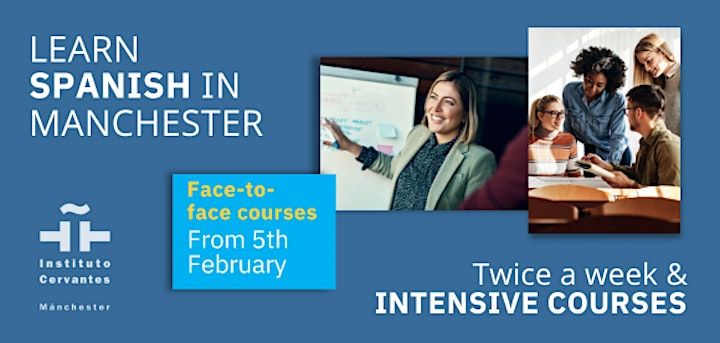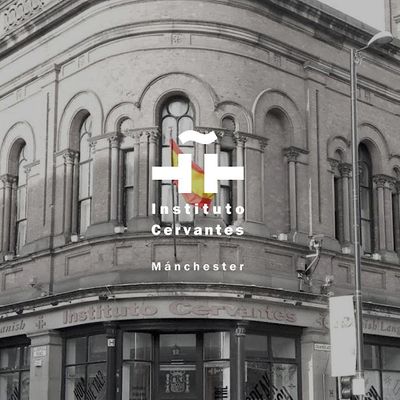
About this Event
In this series of four lectures, we will delve into the literary world of the Spanish Golden Age, understood as a transatlantic phenomenon. We will start with Sor Juana Inés de la Cruz, an icon of the Spanish-American Baroque and a key figure in colonial Latin American literature, who left behind a significant legacy not only in her books but also in the arts. Subsequently, we will explore the life of Erauso, also known as the Lieutenant Nun, whose autobiographical account challenges gender conventions and portrays a life marked by adventure and transgression. Maria de Zayas, a novelist and playwright, will guide us through a world of (proto)feminist fictions that subvert the literary standards of her time. We will conclude with Santa Teresa, whose personal experiences and mystical writings will transport us to a realm between the earthly and the spiritual. These four lectures will allow an analysis of the diversity of female voices and perspectives from a period marked by rebelliousness and creativity.
Fourth lecture
Unlike Sor Juana, who was forgotten for centuries, St. Teresa (1515-1582) has been continuously studied since her death. Like Sor Juana, who cites her as a model, Teresa was basically self-taught. Both shone so brightly that their successive confessors could not overshadow them. Thus, they learned from no other teachers than the books themselves. However, Sor Juana leaned towards secular knowledge, while Teresa focused on theology. This fourth and final lecture will analyse the first chapters of the Libro de la vida [Book of Her Life] (1564-1565), where Teresa describes her childhood and youth. We will also examine her mystical ecstasies, one of the most difficult human experiences to describe, portrayed in full spiritual maturity, emphasising the opposition between suffering and pleasure, loss and gain, body and soul.
Luis Castellví Laukamp is a Lecturer in Spanish Cultural Studies at the University of Manchester. His teaching and research interests range widely but mainly focus on the literatures and cultures of early modern Spain, Latin America and the Philippines. Central to his academic work are the theories and practices of poetic influence and transmission of culture in the early modern Hispanic world. He previously taught as an Affiliated Lecturer at the University of Cambridge, where he earned his PhD, and was a Humboldt postdoctoral scholar at Heidelberg University. Author of Hispanic Baroque Ekphrasis (2020), which has been translated into Spanish. Anchored in the emerging field of Pacific Rim Studies, his current research is devoted to the first Spanish chronicles written in Asia.
Online Event
In Spanish (simultaneous interpretation into English).
More information: [email protected]

En esta serie de cuatro charlas, nos adentraremos en el mundo literario del Siglo de Oro español, entendido como un fenómeno transatlántico. Comenzaremos con Sor Juana Inés de la Cruz, icono del Barroco hispanoamericano y figura clave en la literatura virreinal, quien dejó un gran legado no solo literario, sino también artístico. Posteriormente, nos adentraremos en la vida de Erauso, también conocida como la Monja Alférez, cuyo relato autobiográfico desafía las convenciones de género y muestra una vida marcada por la aventura y la transgresión. María de Zayas, novelista y dramaturga, nos guiará por un mundo de ficciones (proto)feministas que subvierten los estándares literarios de su tiempo. Concluiremos con Santa Teresa, cuyas experiencias personales y escritos místicos nos transportarán a un mundo entre lo terrenal y lo espiritual. Estas cuatro charlas permitirán analizar la diversidad de voces y perspectivas femeninas de un período marcado por la rebeldía y la creatividad.
Cuarta charla
A diferencia de Sor Juana, olvidada durante siglos, Santa Teresa (1515-1582) ha sido estudiada sin interrupción desde su muerte. Al igual que Sor Juana, que la cita como modelo, Teresa fue autodidacta. Ambas brillaron tanto que sus sucesivos confesores no pudieron eclipsarlas. Por eso aprendieron sin más maestros que los mismos libros. Pero Sor Juana se inclinaba por los conocimientos seculares; Teresa, en cambio, por la teología. Esta cuarta y última charla analizará los primeros capítulos de su Libro de la vida (1564-1565), donde Teresa describe su infancia y juventud. También examinaremos sus éxtasis místicos, una de las experiencias humanas más difíciles de describir, tal como los retrata en plena madurez espiritual, enfatizando la oposición entre sufrimiento y placer, pérdida y ganancia, cuerpo y alma.
Luis Castellví Laukamp es profesor de Estudios Hispánicos en la Universidad de Manchester. Sus intereses docentes e investigadores son amplios, pero se centran principalmente en las literaturas y culturas de la España del Siglo de Oro, América Latina y Filipinas. Un eje central de su investigación lo conforman las teorías y prácticas de la influencia poética y la transmisión cultural en el mundo hispánico del Siglo de Oro. Antes de Manchester, el Dr. Castellví fue profesor afiliado en la Universidad de Cambridge, donde se doctoró, e investigador postdoctoral Humboldt en la Universidad de Heidelberg. Es autor de Hispanic Baroque Ekphrasis (2020), traducido al español. Su investigación actual, anclada en el campo emergente de los estudios de la cuenca del Pacífico, se dedica a las primeras crónicas asiáticas escritas en español.
Actividad en línea y en español (con traducción simultánea al inglés).
Más información: [email protected]

Want to learn Spanish?
We have online and in-person language classes for all levels. See our schedule here.
Event Venue
Online
GBP 0.00












